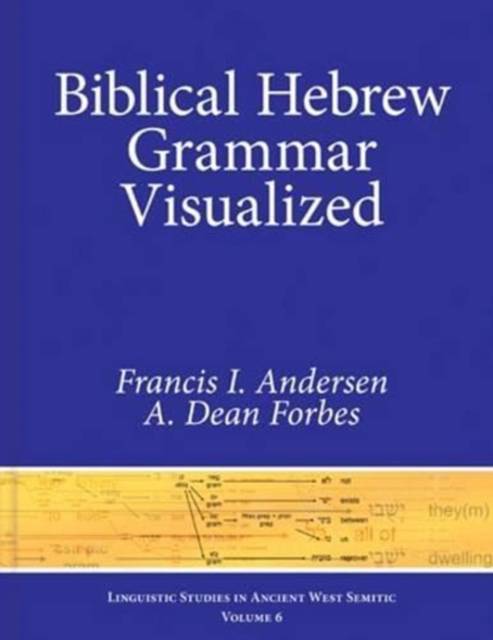
- Retrait gratuit dans votre magasin Club
- 7.000.000 titres dans notre catalogue
- Payer en toute sécurité
- Toujours un magasin près de chez vous
- Retrait gratuit dans votre magasin Club
- 7.000.0000 titres dans notre catalogue
- Payer en toute sécurité
- Toujours un magasin près de chez vous
Description
In Biblical Hebrew Grammar Visualized, Andersen and Forbes approach the grammar of Biblical Hebrew from the perspective of corpus linguistics. Their pictorial representations of the clauses making up the biblical texts show the grammatical functions (subject, object, and so on) and semantic roles (surrogate, time interval, and so on) of clausal constituents, as well as the grammatical relations that bind the constituents into coherent structures.
The book carefully introduces the Andersen-Forbes approach to text preparation and characterization. It describes and tallies the kinds of phrases and clauses encountered across all of Biblical Hebrew. It classifies and gives examples of the major constituents that form clauses, focusing especially on the grammatical functions and semantic roles. The book presents the structures of the constituents and uses their patterns of incidence both to examine constituent order ("word order") and to characterize the relations among verb corpora. It expounds in detail the characteristics of quasiverbals, verbless clauses, discontinuous and double-duty clausal constituents, and supra-clausal structures.
The book is intended for students of Biblical Hebrew at all levels. Beginning students will readily grasp the basic grammatical structures making up the clauses, because these are few and fairly simple. Intermediate and advanced students will profit from the detailed descriptions and comparative analyses of all of the structures making up the biblical texts. Scholars will find fresh ways of addressing open problems, while gaining glimpses of new research approaches and topics along the way.
Spécifications
Parties prenantes
- Auteur(s) :
- Editeur:
Contenu
- Nombre de pages :
- 416
- Langue:
- Anglais
- Collection :
- Tome:
- n° 6
Caractéristiques
- EAN:
- 9781575062297
- Date de parution :
- 01-04-12
- Format:
- Livre relié
- Format numérique:
- Genaaid
- Dimensions :
- 216 mm x 284 mm
- Poids :
- 1315 g

Les avis
Nous publions uniquement les avis qui respectent les conditions requises. Consultez nos conditions pour les avis.






